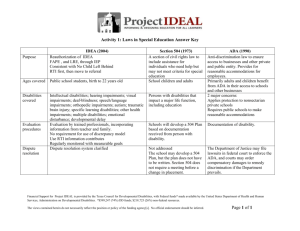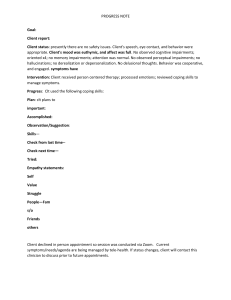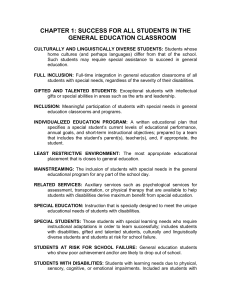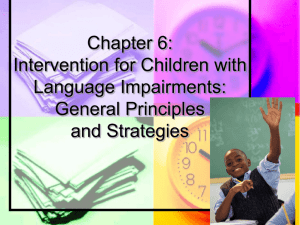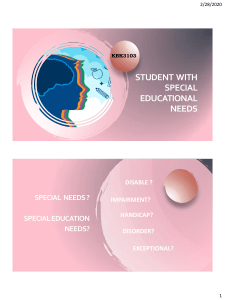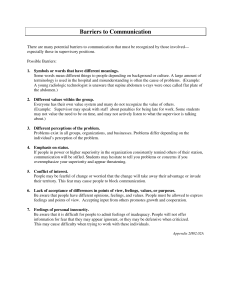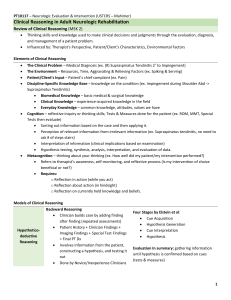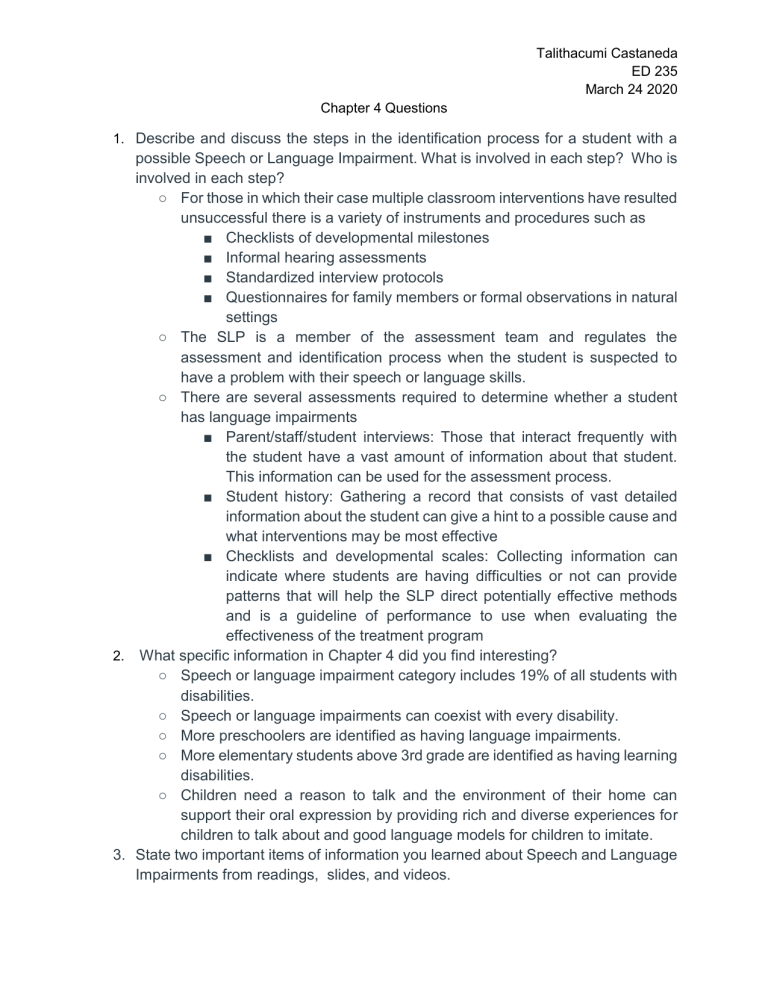
Talithacumi Castaneda ED 235 March 24 2020 Chapter 4 Questions 1. Describe and discuss the steps in the identification process for a student with a possible Speech or Language Impairment. What is involved in each step? Who is involved in each step? ○ For those in which their case multiple classroom interventions have resulted unsuccessful there is a variety of instruments and procedures such as ■ Checklists of developmental milestones ■ Informal hearing assessments ■ Standardized interview protocols ■ Questionnaires for family members or formal observations in natural settings ○ The SLP is a member of the assessment team and regulates the assessment and identification process when the student is suspected to have a problem with their speech or language skills. ○ There are several assessments required to determine whether a student has language impairments ■ Parent/staff/student interviews: Those that interact frequently with the student have a vast amount of information about that student. This information can be used for the assessment process. ■ Student history: Gathering a record that consists of vast detailed information about the student can give a hint to a possible cause and what interventions may be most effective ■ Checklists and developmental scales: Collecting information can indicate where students are having difficulties or not can provide patterns that will help the SLP direct potentially effective methods and is a guideline of performance to use when evaluating the effectiveness of the treatment program 2. What specific information in Chapter 4 did you find interesting? ○ Speech or language impairment category includes 19% of all students with disabilities. ○ Speech or language impairments can coexist with every disability. ○ More preschoolers are identified as having language impairments. ○ More elementary students above 3rd grade are identified as having learning disabilities. ○ Children need a reason to talk and the environment of their home can support their oral expression by providing rich and diverse experiences for children to talk about and good language models for children to imitate. 3. State two important items of information you learned about Speech and Language Impairments from readings, slides, and videos. Talithacumi Castaneda ED 235 March 24 2020 ○ As children age, it is highly important that their parents or guardians maintain a language-rich environment. ○ SLPs often work with families, especially families that have a student with disabilities. ○ It is important that teachers do not complete words for the student or talk for them

